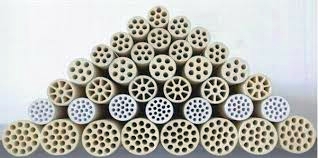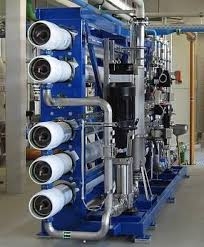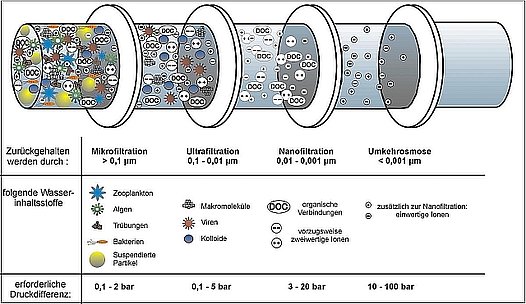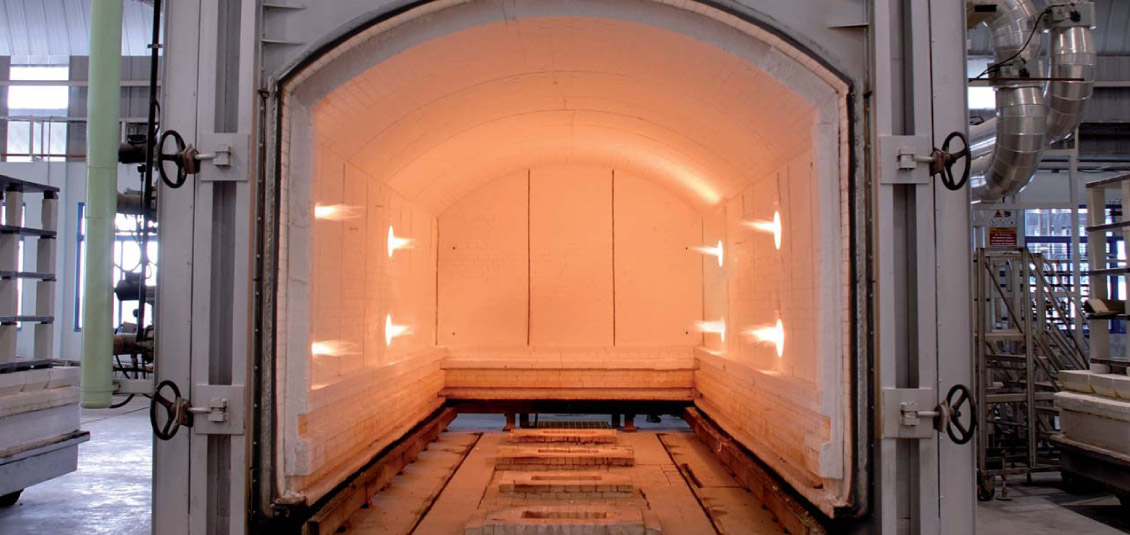
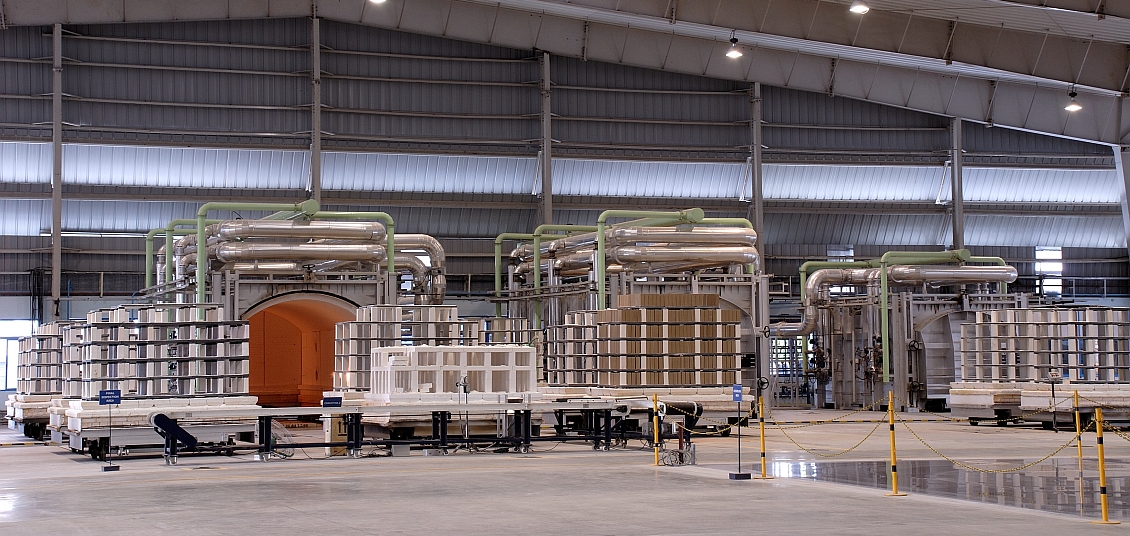
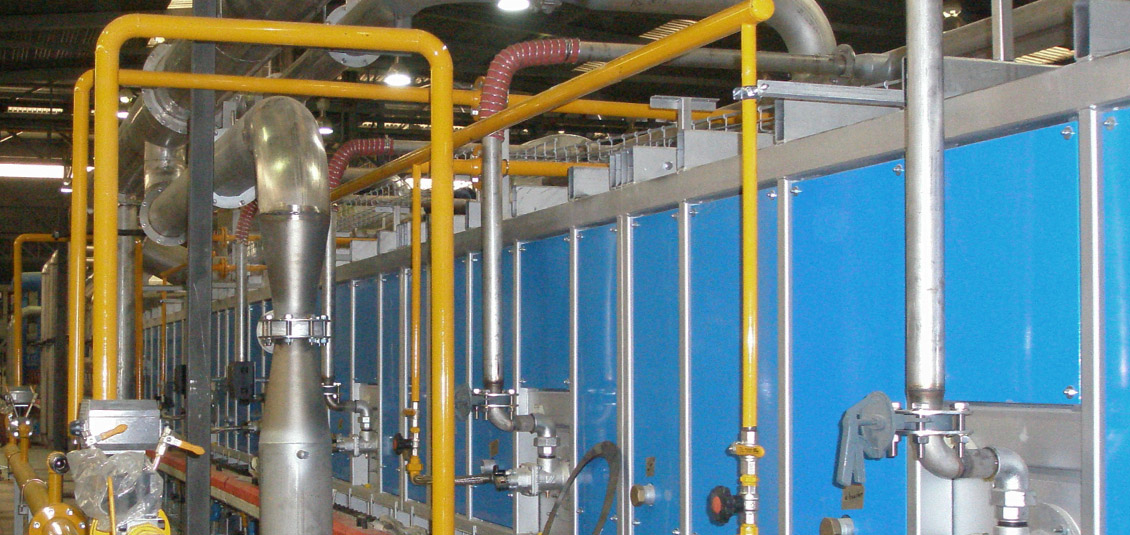
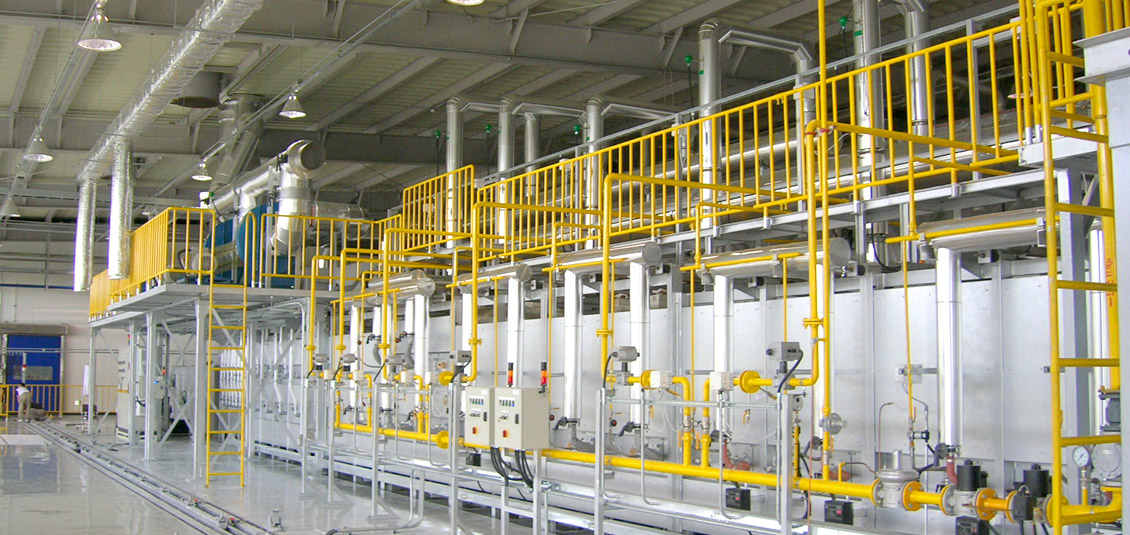
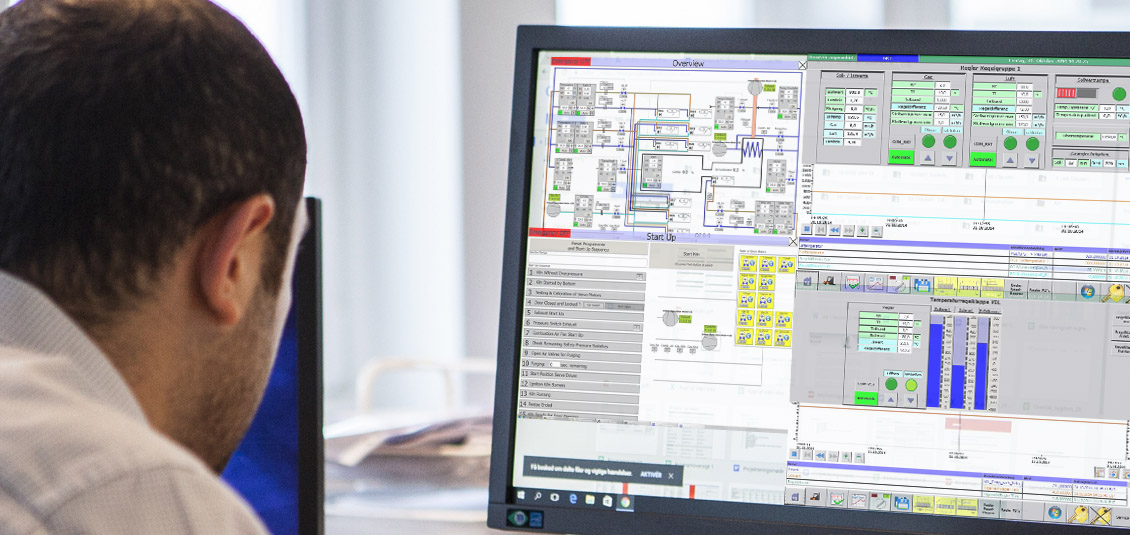
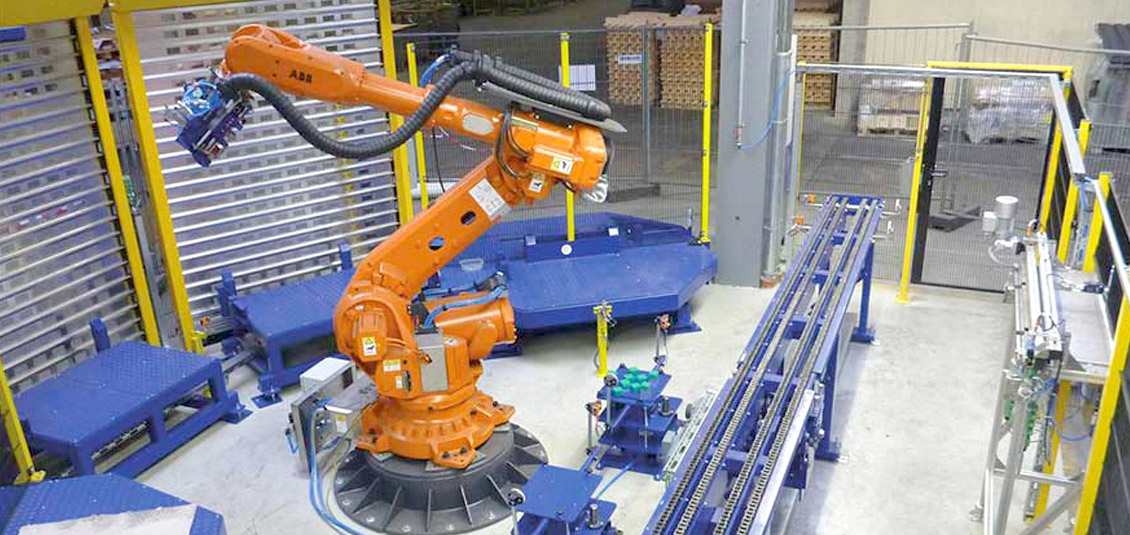
Membrane Filter
The effectiveness of ceramic membrane filters has increased tremendously in all areas due to technical developments (e.g. nanotechnology). Ceramic membranes are perfect for value-added or hygienic products, as well as for applications that require selective deposition from liquid streams containing aggressive ingredients such as solvents.
Technology and function of ceramic membrane elements
Dynamic filtration with ceramic membrane elements provides maximum mechanical and chemical stability combined with the lowest possible flow resistance. The membranes consist of a carrier material of pure α-Al2O3 with microporous structure. The membrane is applied to this substrate and consists of at least one, but usually of several layers of highly porous ceramic with a well-defined structure. The layer with the finest porosity determines the filtration properties.
Ceramic membrane filter element (tubes) attend e.g. as transmission barriers against impurities in the air, for example bacteria, mildews and protozoa or for filtration, purification and separation in the biopharmaceutical market.
Our goal is to design an individual kiln plant with which you can achieve optimum product characteristics.
The sintering process and the thermal aftertreatment play a key role here. The high purity alumina tubes are sintered at firing temperatures up to 1720°C.
German Kiln Technology (GKT) is a major plant manufacturer for sintering lines and industrial furnace plants for burning membrane filter elements. To this end, we offer a wide variety of systems, depending on capacity and procedure with integrated TNV system.
Depending on requirements and application, different furnace types are available.
GKT Kiln option
- Shuttel kilns up to 1750°C
- Bell type kilns up to 1750°C
- Tailored thermal waste gas treatment up to 1000°C
